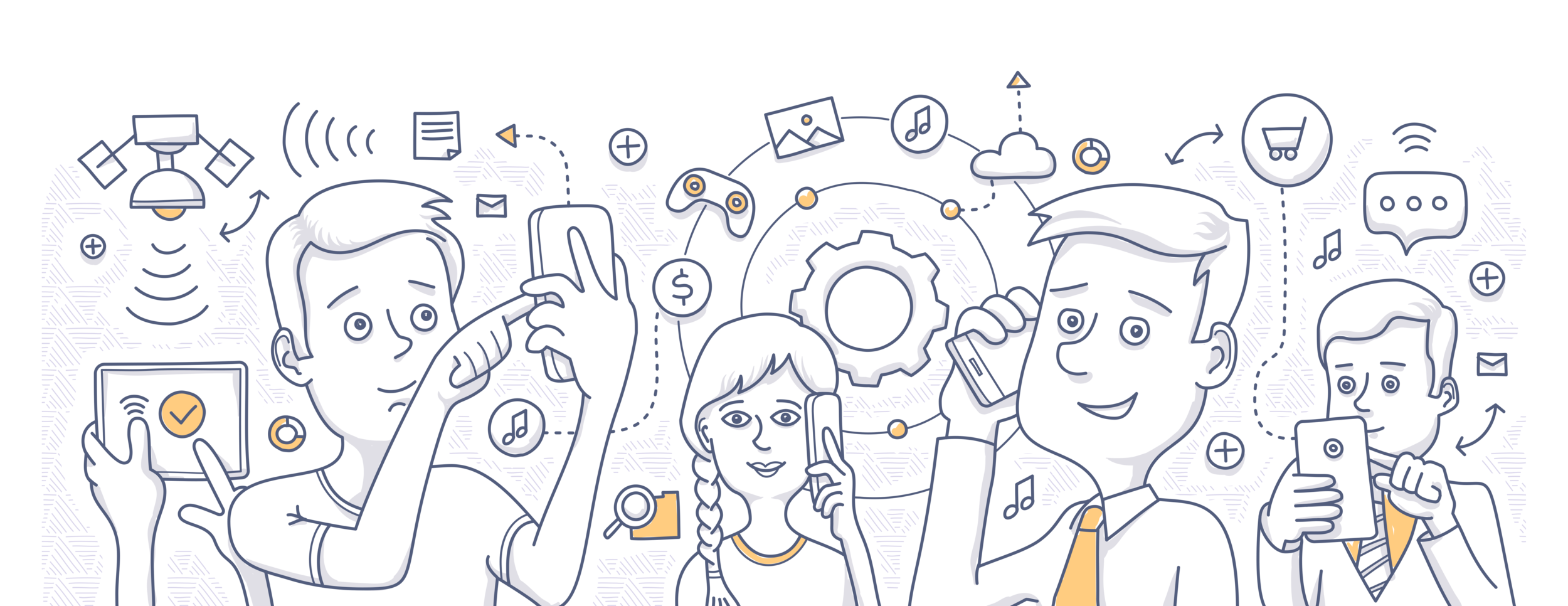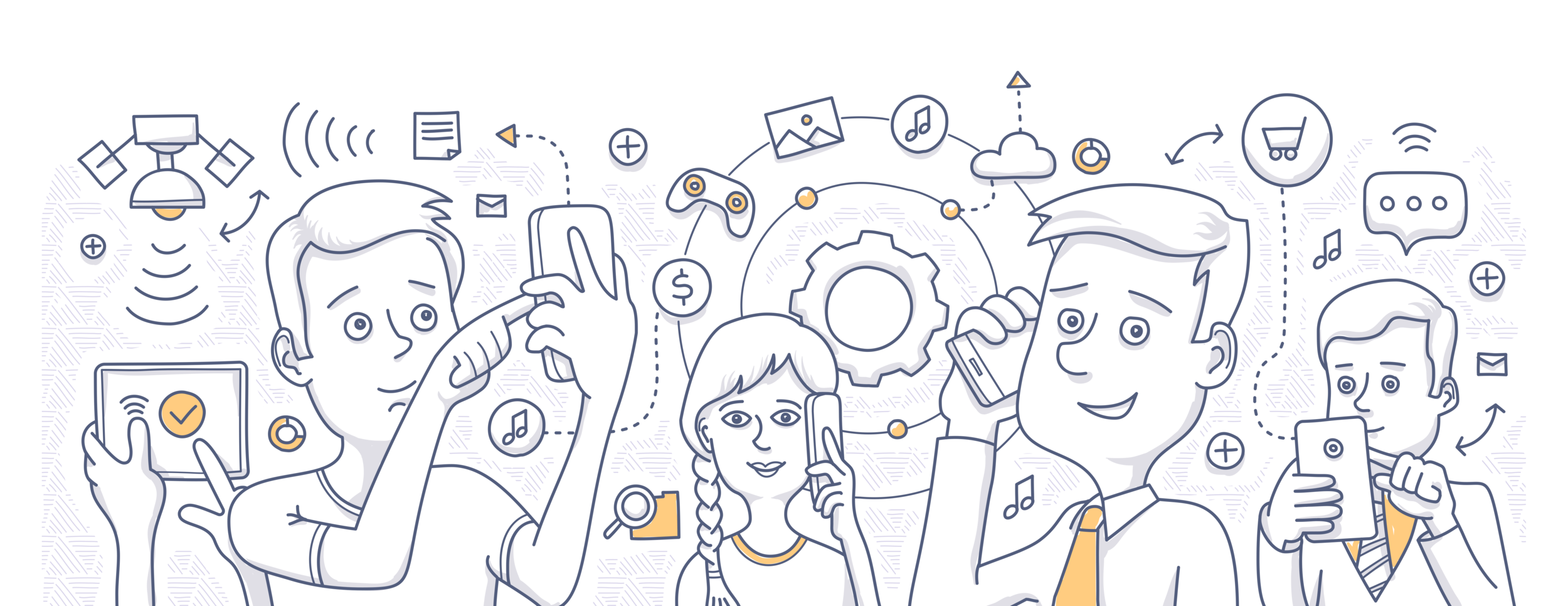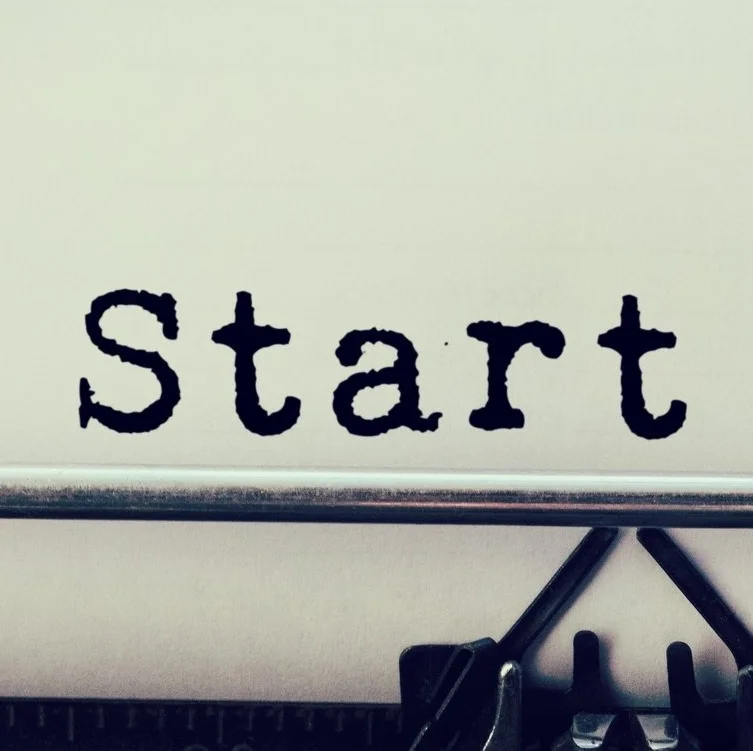Are You Leaving Out Your Sponsors And Vendors?
While attendees are usually the main focus, it is important to attract and retain sponsors and vendors each year. By maximizing your event technology already in place, you can help them have the best experience possible, feel welcome and included, and help ensure they will be back again next year!
Do you know your event app adoption rate? In a recent conference where we provided on-site app management services, our overall app adoption rate was 83%. While high, we dug a little further into the stats (which you should be doing after your event to determine your actual event technology ROI), we noticed that the app adoption rate among attendees was actually 93%! The adoption rate among sponsors and vendors was 50%, which pulled the overall rate down. If not reported accurately, this has a negative impact on the ROI of the event technology being used.
Unfortunately, this is a common scenario as sponsors and vendors are being left out. There are many reasons for this, but the biggest reason is lack of communication combined with the perception that the app is only needed for attendees to see the conference sessions and schedules. If your sponsors and vendors only appear for the trade show and break times, they generally assume they don’t need the app. What they don't know is that they are missing out on all of the added social interaction throughout the conference that your event technology now provides.
Looking at the big picture, this can also lead to larger impacts on the overall event experience, as sponsors and vendors may feel disconnected and not actively involved in your event. Flip this situation by leveraging your event technology!
Sponsors and vendors are often left to fend for themselves during an event, focusing on their own marketing and goals. If they do not understand how to interact with your audience, the vendor-attendee experience may default to the typical forced sales pitch, which can negatively affect the overall feel of your conference. While you can’t change the business practices of your vendors and sponsors, you can help them interact with attendees more fluidly by involving them more, and actually treating them as attendees themselves.
While the main focus of the planner is generally the attendees, it is important to not forget the sponsors and vendors! Remember - without them, the meeting or conference may not even happen! As important as they are, once the event begins and sponsors and vendors are on-site and set up, they are usually put on the back burner, as attendees and conference details take precedent. While this is not necessarily a bad thing, your vendors and sponsors need some love, too! If you want them to keep coming back, it is your responsibility to include them in the conference, and make them feel welcome and part of the group. You can put steps in place for the conference to be successful for them, not just the attendees.
Event technology today brings so much more to an event than just an online schedule. It brings numerous ways for attendees and sponsors to communicate, connect, and form relationships with each other that go far beyond a sales pitch behind a table with giveaways! Here are a few ways you can use your event technology to help ensure the sponsors and vendors feel included and truly part of the conference:
Identify.
Ensure that each sponsor attendee also has an attendee profile in your event app. This will allow the vendor to participate in the Activity Feed and interact with other attendees on a personal level by posting and/or commenting during the conference.
NOTE: Make sure you have clear Terms of Service regarding app usage. These should include banning any selling or non-approved advertising or promotion of a product in the Activity Feed, and keep sponsors posting on a personal level only. You should have a designated moderator to ensure the rules and Terms of Service are followed, with the ability to remove any unwanted posts that may appear.
Market.
Create a marketing plan that allows sponsors and vendors to purchase a specific amount of ad space throughout your conference app and emails. These can be sold à la carte or integrated into modern, up-to date sponsorship packages that include benefits in your event technology. Depending on the technology you use, there are also ways to provide statistics on ads that were run through the event app, giving sponsors with more ROI evidence to defend their purchase (and future purchases!).
NOTE: You should have a designated person managing, maintaining, and monitoring these ads, especially if they appear during the conference for a set amount of time.
Include.
Consider ways that your group can integrate the sponsors and vendors into your gamification plan. Whether it’s scanning codes, lead retrieval, or providing prizes for interaction, they should be involved. Providing customized discussion rooms, online activities, or even specific session tracks for sponsors and vendors will help them become more involved and connected to your event. Customized messages, sent directly to sponsors and vendors, can also be managed through your event app during the event, inviting them to specific events, providing information, or to simply check in on them.
Educate.
Just as you should provide instructions to your attendees about the event app, you also need to provide instructions to your sponsors and vendors. Don't assume they know how to use the app to benefit themselves to the fullest. Providing sponsors and vendors tips on how they can leverage the app will help them become more involved and ingrained with your event. Stats show that sponsors and vendors are not taking advantage of everything you have to offer to them. Help them with ideas of how to properly use your technology to engage and interact with your group.
While attendees are usually the main focus, it is important to attract and retain sponsors and vendors each year. By maximizing your event technology already in place, you can help them have the best experience possible, feel welcome and included, and help ensure they will be back again next year!
What Actually Is Gamification?
We recently had the opportunity to be a guest blogger for Prevue, a company providing experiential, high-impact experiences for meeting and incentive planners. In addition to guest blogging, we also have the privilege of presenting at upcoming event in Palm Springs - Transforming Meetings Summit. Since we will be pulling back the curtain and showing the attendees the inner workings and behind the scenes details of the gamification and technology being used at the event, we thought it might be good to first discuss what gamification actually is.
We recently had the opportunity to be a guest blogger for Prevue, a company providing experiential, high-impact experiences for meeting and incentive planners. In addition to guest blogging, we also have the privilege of presenting at upcoming event in Palm Beach - Transforming Meetings Summit. Since we will be pulling back the curtain and showing the attendees the inner workings and behind the scenes details of the gamification and technology being used at the event, we thought it might be good to first discuss what gamification actually is.
Gamification is one of the hottest phrases in the event industry today. We’ve all heard it, but what does it actually mean? Gamification is a concept of applying game mechanics, such as points, badges, and challenges to non-game activities. The success of your game depends on how well the combination of these game mechanics work together and create an overall engaged attendee experience. It is a process to entice your attendees, keep them engaged with your event from before it starts until after it ends, and to help build and strengthen your brand.
While it sometimes does include an actual game to play, gamification is a broad term used to describe methods being employed to attract and engage your audience. It may be simply earning points when attendees engage with the app by posting updates, checking in with sponsors or sessions, or providing feedback. The main reason behind gamification is not just for attendees to have fun, it can be a way for you to achieve your event goals!
There are many types of gamification options available for planners that can be integrated into an event. Some examples include:
- Earning points
- Earning badges
- Winning prizes
- Answering trivia questions
- Completing challenges
- Going on a scavenger hunt
- Checking in to sessions or sponsors
- Completing surveys
Adding an individual game into your event does not mean you are covered because you now have “gamification” at your event. If this is just a random game, it will not automatically be successful. You need an implementation plan - a customized gamification plan. All of the pieces of your gamification plan need to become a seamless part of your event, and something that your unique audience will enjoy and embrace as part of the event, not just a gimmicky add-on.
When implemented properly, the concept of gamification is an effective strategy to connect and engage with your attendees, achieve your event goals, and create an overall deeper event experience.
What To Expect When Integrating New Technology Into Your Event
Are you integrating new technology into your event this year? Congratulations! Isn’t it exciting? Whether you are adding a new event app or implementing online registration, one of the most important aspects to consider is your audience. We love to geek out about a new product, but we always have to remember not everyone is as excited about it as we are! Your audience is the key to your success. It is up to you to prepare them for anything you throw at them, especially if it something new and may seem scary!
Are you integrating new technology into your event this year? Congratulations! Isn’t it exciting? Whether you are adding a new event app or implementing online registration, one of the most important aspects to consider is your audience. We love to geek out about a new product, but we always have to remember not everyone is as excited about it as we are! Your audience is the key to your success. It is up to you to prepare them for anything you throw at them, especially if it something new and may seem scary!
Adoption Rate
How quickly are you looking for your attendees to adopt this new technology? What level of adoption rate are you looking to get? If you don't know these answers, take some time to determine them. It is important to be realistic with these answers.
Depending on the technology being implemented, these numbers can vary drastically - it depends on your goals and your plan. For example, if you are “going green” with a mobile app and immediately abolishing a printed program the first year of the app, you may get some pushback and low adoption rate in the beginning. The same goes for online registration. If your attendees are used to registering for your conference by calling, emailing, or mailing back a postcard (yes, it still happens!), it may take a few years to fully implement that online registration system and get to a high adoption rate. It will be worth it in the long run, though!
Communication, Instructions, and Support - Oh My!
While it may take some time for these examples to achieve your desired adoption rate, don’t fear (they can smell it!). With time, clear communication, and instructions, it can happen! During this time, you will need to be patient with those that do pushback, understanding that they may be scared or uncertain to jump into something new. Give them options, and be prepared for additional communication and long phone calls to help ease them into these new processes.
Finding ways to effectively distribute instructions will be vital as well. While some people actually do read every word in their emails, regardless of the length, there are plenty of people who only skim them, and rarely get through a complete email before moving on. You will need to adapt your marketing plan to fully include this exciting new feature. Let the attendees know the benefits of using the great, new technology! Hopefully, the product you choose is smooth, user-friendly, and intuitive. Even if it is, though, there always needs to be some instructions and tips. Embrace the early adopters and enable them as representatives, spreading the enjoyment to others, while helping them at the same time.
During this transition time, you may need to offer options to your attendees in order to keep everyone happy and give them the time to test the waters on their own before you force them into it! For a mobile app, you may need to offer a printed program while overtly pushing and advertising the mobile app for a year or two, as you gradually reduce the visibility and number of printed programs available. For a new online registration system, you may need to offer multiple ways to register while everyone gets used to and comfortable with the system. While this will end up taking more work on your part, it will help in the end once everyone is using the online system!
Don’t Give Up!
Ultimately, your attendees should determine your process. Make sure your adoption rate goals are realistic to the event. Some events may have very high adoption rates the first year, while it may take other events a few years to reach a high adoption rate. You, as the planner, have a unique understanding of what your event needs and in what direction it needs to move to stay successful. As you transition in this new technology, be open minded and request feedback from your staff and attendees. Be flexible if needed, but don’t necessarily give in to the pushback. People don’t like change, but once it is no longer new, they don’t know how they lived without it!
As a planner and a leader - embrace the change, and the challenges that come with it! Be confident in your path. Ask for help if you need it. We are here if you need anything!
To Ask or Not To Ask
To ask or not to ask. That is the question. What do you do when you don’t know what to ask?
The Call
Imagine this scenario:
With demand growing for a new technology product you are totally unfamiliar with, you finally set up a call with a salesperson to figure it all out and determine what you need, or if it will even work for you. You are a bit apprehensive because: 1) you don’t know much about the product or even what it can do for you, 2) you don’t have time for this call because there are so many other pressing needs, and 3) you hate sales calls! Regardless, you know it has to be done, so you bite the bullet and jump on the call.
Surprisingly, the call seems to go very well. The salesperson seems confident, has just the right balance of friendliness, and is informative. Soon, you are engrossed with the product. They take you through screenshots and examples that promise you the world, all with very little work on your part. You start to believe that this product really is amazing and too good to be true. You kick yourself, bringing yourself back to reality, but can’t find anything in what they are saying that makes you believe otherwise. The call ends exactly on time, with the salesperson saying something like, “Feel free to ask me any questions you have! I am always available!” You leave the call, feeling proud of yourself and confident that this product is right for your event and you completely understand how to easily implement it.
An hour later, as you look at the demo that was sent over, you are clueless. You have no idea what to do. This looks nothing like what you saw on your call. You are lost. You don’t want to call the salesperson back and have them explain things to you again - you said earlier that you understood it. That happy, informative conversation is now a blur and seems like a lost void in your day. Obviously, you know you have lots of questions to ask because you don’t know what to do or where to start, but you don’t know what to ask or how to ask it!
To ask or not to ask. That is the question.
What do you do when you don’t know what to ask?
Does this situation sound familiar? It is all too common for companies to script out their sales pitches, even to the point of recording them and practicing them verbatim. They focus on getting the delicate balance of psychology and language to make you feel comfortable and informed. Their scripted performances do not take into account that each person they speak to is unique and different, and each brings with them a different level of experiences and knowledge. This is where the process breaks down, and the language barrier occurs. Both sides begin speaking different languages. The company reviews their call and sees everything went according to script, so you should totally understand everything. You haven’t contacted them because you are overwhelmed or too busy. They think it is simply because they did a great job and you have no questions. They follow up in a few days anyways, asking if you have any questions. You do, but you don’t know what to ask or how to ask it! This begins the cycle of frustration and time-consuming effort, just trying to get started!
Let me clarify something here. A lack of quality communication does not mean the product is bad. There are plenty of successful companies with wonderful products that implement these typical, yet ineffective strategies. As a public school teacher for 10+ years, I found that using a script is not the best way to ensure understanding. It is simply a way to not say something wrong. While it serves to protect the person speaking, it does nothing to ensure understanding of the topic. To teach something to someone, you must first have an ultimate understanding of the topic yourself - not from a script you memorized, but from first-hand knowledge and expertise. At that point, you are ready to have a conversation and truly talk with someone, without needing a script. You can mold a conversation effectively, and explain anything that person may need.
At Power Event Group, we aim to remove the language barrier, struggle, and confusion between planners and event technology companies. As both planners and event technologists, we are able to speak and understand both sides of the table, with the ability to effectively communicate with both sides. Whether it is discussing contracts, comparing technology needs, managing an event app, building and managing your online registration, or actually implementing the technology and asking the questions for you, we are here to help bridge that gap.
We understand that technology is sometimes overwhelming, especially when it is new to you or you don’t have the time to comprehend and learn the million things that were thrown at you in your demo call. We also understand that everyone has a different level of expertise, and sometimes, it just doesn’t make sense. Our goal is to help you understand it, not sell it.
If the typical sales calls don’t work for you, give us a call. Tell us what your goals are, and we can discuss what the best options are for you. From there, we can train you and your staff, or even implement the product for you, removing the sales calls, confusion, language barriers, and time constraints.
What Is Your Time Worth?
Does your list seem to grow faster than you can cross things off? Whether it is to work more, finish a project, relax, or spend time with family, we all wish we had more time in the day. Your time is valuable, and some tasks often need delegating or contracting out to someone else. Letting go of tasks is sometimes difficult, but if you don't have enough time in the day, it has to be done to ensure you are successful. In the long run, delegating or contracting out some tasks helps to ensure the final product (and your sanity) will be better off!
Time...
Does your list seem to grow faster than you can cross things off? Whether it is to work more, finish a project, relax, or spend time with family, we all wish we had more time in the day. Your time is valuable, and some tasks often need delegating or contracting out to someone else. Letting go of tasks is sometimes difficult, but if you don't have enough time in the day, it has to be done to ensure you are successful. In the long run, delegating or contracting out some tasks helps to ensure the final product (and your sanity) will be better off!
When deciding if you should delegate or contract out a task or service, consider these factors:
- How much is your time actually worth?
- Can someone else do it better and quicker for a marginal price difference?
- Do you have the time and energy to complete it in the absolute best way possible?
- Can someone else do it better?
- How important is the task in question?
- What else is on your plate that needs your time that you may be more skilled at?
- Do you have the time and budget to invest in learning something new - and implement it without mistakes?
- How much time will that specific task actually take in reality?
While you probably already contract out some event services, let's take a look at your event technology. Just a few years ago, event technology was something that was simply a fun add-on to your event if you had the time. Since then, it has become a complete specialized industry of it's own, and a necessary facet of every event today. Event technology can no longer be put on the back burner. Attendees will base their event experience on the logistical smoothness and effectiveness they encounter during your event, and the event technology you put into place plays an integral part in this.
Expectation v. Reality
Using mobile apps as a specific example, many companies use the quick setup and intuitive design of their product as selling points. While these features may be true to set up a basic app, you can't forget everything else that goes into fully and seamlessly integrating that technology into your event, especially if you add in more advanced features. Just launching an app quickly does not guarantee it's success, nor does it get your attendees to adopt it on their own. To integrate your technology smoothly and seamlessly, and have it feel like a connected part of your event, there is much more behind-the-scenes work that needs to be considered such as a technology implementation, pre-event and on-site marketing plan. initial build out, content updates, testing, more content updates, pre-event and on-site attendee engagement, content moderating. attendee interaction and engagement, on-site attendee assistance and support, as well as more updates.
Attendees today expect magic when they use technology. They may not understand how it works, but they expect it to work flawlessly, and for it to be smooth and helpful, not clunky, buggy, and difficult to use. When implementing technology into your event, regardless of what it is, make sure that you have adequate time to do it fully and successfully. If you do not have the time or staff available to truly dedicate to your event technology, both pre-event and on-site, it may be time to delegate or contract that task to someone who does. Your attendees will expect it and be thankful!
Event Technology - Do You Know Where To Start?
The growing buzzword throughout the industry over the past few years has been “technology.” This push for more and more technology in our events stems directly from the fast pace technology is expanding on our everyday lives. Like it or not, technology is here to stay, and it is no longer a luxury to have for your event. It is required and attendees expect it.
Technology. (cue menacing music…) Joking aside, event technology does not have to be scary. You just need to know where to start and what technology is the best fit for your event.
The growing buzzword throughout the industry over the past few years has been “technology.” This push for more and more technology in our events stems directly from the fast pace technology is expanding on our everyday lives. Like it or not, technology is here to stay, and it is no longer a luxury to have for your event. It is required and attendees expect it.
To be, or not to be...overwhelming!
Adding technology into your events should not be scary or intimidating. There are a tremendous amount of ways to integrate technology into an event successfully, regardless of you or your attendee’s level of experience with it. To begin with, focus on the basics. For now, forget about the cutting edge immersive technology demonstrated at SXSW each year or when the UFC completely takes over all of Las Vegas. While fun and amazing, the technology demonstrated at these events can be overwhelming, and may not even fit into your budget! Adding event technology into your event should not be intimidating. It should be a fun, painless, and successful new venture. To begin with, forget about everything you see the technology companies advertising. Forget about the bells and whistles for now. One of your first goals should be to determine what technology works best for your audience that can create a memorable experience, while still fitting into your current budget. Look at your individual event and determine what your goals are for that event. Can technology play a role anywhere? (HINT: This answer is yes!)
Start small.
There are many options available to you, as technology can play a role in many different ways in the meeting and event industry. From easy and intuitive online registration systems, database management, reporting tools, and email communication software to on-site solutions such as mobile apps, streamlined check ins, attendee engagement tools, and immediate customer support options, there is technology available to help you in any aspect of your event. From basic to expansive and cutting-edge, there is something out there for you can help make your event smoother and more memorable.
A key aspect to remember when integrating technology is finding what is right for you and your audience, and being able to manage it properly. Whatever you choose, be sure to give your attendees a chance to learn and embrace whatever technology you implement. Here are a few questions to consider when looking to implement technology:
- What type of experience do you want your attendees to have?
- Do attendees have concerns with any particular part of the event process?
- Are there any tasks that are time consuming and tedious? Can some type of technology assist with this to simplify or speed up a process?
- Do your current technologies work well with each other?
- Are your attendees ready for new technology? Do you have a technology implementation plan in place?
- Where can technology help? Is there anywhere it should be avoided?
- Do you have the staff and/or time to add any additional technology and implement it effectively?
- Do you know enough to answer these questions or should you seek advice?
If you are just starting out with technology, don’t get distracted by all of the shiny add-ons. Look at the basic product and begin by implementing it smoothly and seamlessly. Don’t forget about the additional time and learning curve that always comes when adding something new. When done correctly, the right technology can be a wonderful addition to any event, and will have your attendees talking and ready to come back with friends!
Tune in next time - same Tech time, same Tech channel….
To Contract or DIY - That Is The Question
Sometimes, the answer is easy. It is easy to decide you need an outside contractor for larger and prominent specialties such as furniture rentals, electricians, and catering. That is how is has always been. These have always been separate fields and trades, and are considered highly detailed specialities. Times are changing, though, and planners are now also finding themselves having to decide whether or not to hire a contractor to do something they used to do themselves just a few years ago.
Sometimes, the answer is easy. It is easy to decide you need an outside contractor for larger and prominent specialties such as furniture rentals, electricians, and catering. That is how is has always been. These have always been separate fields and trades, and are considered highly detailed specialities. Times are changing, though, and planners are now also finding themselves having to decide whether or not to hire a contractor to do something they used to do themselves just a few years ago. Over the past few years, though, specialty fields like event technology and sustainability have blossomed and grown into unique trades and even career paths. They have become very detailed and time consuming, and each can easily be considered a full time job, just like a caterer and electrician.
Making the decision to contract out something that you used to do yourself is sometimes difficult. The struggle is real. We understand the amount of pride and confidence that comes with being in the event industry. We also understand that as the industry changes and evolves. Planners are faced with balancing all of the new demands placed upon them. We know that, given the time, planners would be able to learn everything and understand these specialty fields. Time is the deciding factor in this situation. How valuable is your time to you?
Here are a few ways that contractors like Power Event Group can help you:
- Give you more time in your day to do other things! Best gift ever! How many times have you said that you don't have enough time to get everything done?
- Contractors are already experts in their field and can do something in a fraction of the time it would take you to learn it or train someone else to do it.
- Contractors often have relationships they have already built within the industry, and can provide you with more options and possible discounts.
- They can work with you and smoothly integrate into your team, increasing your own possibilities and productivity.
Do you have other reasons you hire (or don't hire) contractors? Join the conversation by commenting below!
2017 - The Year of Specialized Event Planners - The Example
As we wrote in our bit last week, event planners are needing more and more specialties, and some have even begun to break the mold and create specialized event planning services. We realized we may need an example of what we were talking about - just to hit home a little more. Let's do a technology example, since that is where we have the most experience.
As we wrote in our bit last week, event planners are needing more and more specialties, and some have even begun to break the mold and create specialized event planning services. We realized we may need an example of what we were talking about - just to hit home a little more. Let's do a technology example, since that is where we have the most experience.
Picture this:
The event technology market is exploding and expanding at a furious pace. While some event planners love technology, they just don't have enough time in the day to dedicate to learning everything new that comes out and utilize that technology to it's fullest potential. Other planners are very uncertain about technology and don't know where to begin. Herein lies the problem. Some event technology companies sell the shiny new gadget to the tech-savvy planner that doesn't have the time to use it, or completely overwhelms the planner that doesn't understand it. Feel familiar?
In the end, the technology becomes a headache for both types of planners! It winds up not being implemented smoothly or fully, and attendees ultimately have problems and complaints. Yuck! This leaves a bad taste in everyone's mouth regarding the technology.
Meeting Professionals International (MPI) is beginning to see this specific trend as well. Below are some survey results they recently captured regarding technology use and event planners:
- Only 8% of event planners feel they are making the most out of their event technology
- Only 21% of event planners are confident about buying event technology solutions
- 60% of event planners say that it is not always easy to understand the capabilities and benefits for event tech from vendor communications
In most cases, the technology is actually not the problem. The problem lies in the understanding and implementation of it - and having the time in the day to do it all. This is how the times are changing. Fields like event technology have become so much more specialized and advanced from just five years ago. It takes more time and expertise to keep your event technology running smoothly and effectively. Using event technology is already a balancing act. Many attendees want to use it and enjoy it, as it has become a part of their everyday lives, but they have had so many negative event technology experiences in the past, they don't want to "try again". It is important for event planners to change that attendee experience into a more positive one.
As event planners that specialize in technology, Power Event Group assists you at any level necessary, whether it be consultation or by serving as your white labeled event technology department where we act as employees of your company. We are prepared and ready to handle the initial sourcing/contract conversations, the overall event technology design and build-out, communication with vendors and attendees, on-site implementation/monitoring, and even on-site staffing of an attendee Technology Command Center/Help Desk for any attendee needs. While we are there supporting and handling all of your technology needs, we are able to give back to you the most precious gift - time! How much is your time worth? How much more could you do with that extra time?
Regardless of your feelings towards it, event technology is not going away. It is up to the passionate event planners (and event technologists like ourselves) to help build a new atmosphere of event technology that attendees enjoy and embrace. The way things are now regarding event technology is not working. It is holding the industry back. You are not in this alone, though. We are here to help. We are here to help change the current status quo regarding event technology and turn it into an experience where attendees leave your event saying, "Yes! That is the way technology is supposed to work!"
2017 - The Year of Specialized Event Planners
A new trend is beginning to emerge in the event planning industry - event planners are beginning to become more specialized. As the event planning industry evolves and grows, a new sub-culture within the industry has started to grow with it, as some of the specialized event planners have broken away from tradition and started new companies to help meet these new needs! According to surveys done by MPI International, 45% of event planners are increasing the amount of contractors they hire!
Times are changing. As we all strive to move our industry forward, MPI and Jessie States, CMM, Manager of Professional Development, Meeting Professionals International, agree that "[s]pecialists will drive our industry forward. They will help guide the events marketplace as key identifiers of trends and next practices."
A new trend is beginning to emerge in the event planning industry - event planners are beginning to become more specialized. They are specializing in fields such as Food & Beverage, Sustainability, Technology, and more. As each field becomes more specialized and detailed, more expertise is also needed to keep up the expected level of performance in each individual field, and there is often simply not enough time in the day to keep up! In order to solve this problem, companies and independent event planners are beginning to hire outside contractors to fulfill these specialty niches and maintain the highest level of expertise possible.
MPI seems to agree with this as well. According to surveys done by MPI International, 45% of event planners are increasing the amount of contractors they hire. We recently had the opportunity to attend an MPI Virginia educational session with by Jessie States, CMM, Manager of Professional Development, Meeting Professionals International. She went into further detail about the event planning industry, stating that as industries in general mature, they typically follow a five-level classification pattern: 1) not defined, 2) ad hoc, 3) repeatable, 4) defined, 5) managed and optimized. She continued by saying that "as our industry moves into its fully optimized stage, we find organizations and individuals shifting their foci from merely managing their meetings and events to strategically and thoughtfully integrating these programs into their overall businesses, and consistently improving and innovating them over time. This requires a shift from the mere management of events (Level 4), and it requires new skill sets that meet the demands of this ever-shifting marketplace. Specialists are called in to provide expertise in myriad areas, from technology and corporate social responsibility to experience and even learning design. Large organizations may fill these roles with full-time employees, while smaller organizations may look to consultants to answer their needs."
As the event planning industry evolves and grows, a new sub-culture within the industry has started to grow with it, as some of the specialized event planners have broken away from tradition and started new companies to help meet these new needs! In the past, the relationship has always just been between the buyer and the seller. The planner and the product. Two different worlds, regardless of how much you talk. This relationship is often strained to the point that planners no longer want to deal with vendors. Never fear - you now have other options! There are companies out there like Power Event Group that have your best interest in mind and fully understand their specific field as well. They are run by specialized event planners that serve as middlemen, or brokers, for you.
Times are changing. As we all strive to move our industry forward, MPI and Jessie agree that "[s]pecialists will drive our industry forward. They will help guide the events marketplace as key identifiers of trends and next practices." Regardless of what field you may need assistance with, if you are feeling more and more overwhelmed with the amount of details and expertise you need, remember that you are not alone. There are new companies out there that are not just selling a product. They truly have your best interest in mind and want to help make the event planning industry even better!
Technology Bits
Welcome to Technology Bits - by Power Event Group. This is a new venture for us at Power Event Group, but something that we have been gearing up for for some time now. If you have followed us for the past year or so, you know Jeannie has had the privilege of writing for Event Manager Blog. Partnering with such a great company has been an amazing adventure and opportunity, but this year, we wanted to focus our energy more on the event technology industry and what Power Event Group does - and how we can help you do what you do even better!
Technology Bits will be focused on just that. Bits (and bytes) of technology information directly related to the event industry. Please share us around the event community and join the conversation. Thanks for joining us on this new adventure. Hold on to your floppy disks!


















